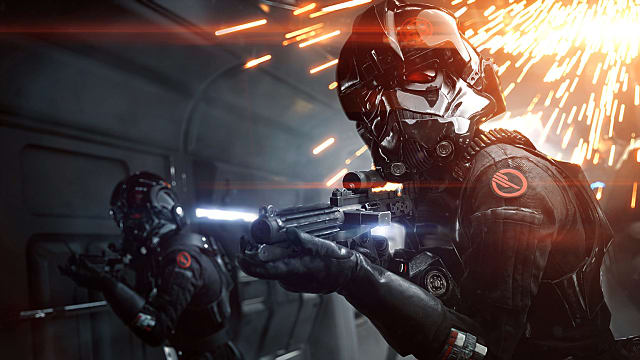The ESRB has addressed the controversy surrounding microtransactions and loot boxes by announcing that future games that come with elements of purchasing content with real-life currency will be sold with an ‘in-game purchases’ label. In a statement put out on Twitter, the US ratings board say they have been working “to develop a sensible approach” to the outcry that anchored titles such as Metal Gear Survive, Star Wars Battlefront 2, and NBA 2K18 upon their release.
From an an-yet-unannounced date in the future, the ESRB will add a label to all physical games that include microtransactions. These include “features like bonus levels, skins, surprise items (such as item packs, loot boxes, mystery awards), music, virtual coins and other forms of in-game currency, subscriptions, season passes, upgrades (e.g. to disable ads) and more.”
In addition to this, a website has been set up by the ESRB to educate parents and “to help raise awareness” of issues such as micotransactions in gaming: Parentaltools.org.

This is all extensive – and there’s more to come. The ESRB promises that this will only be the first step and, as governments around the world start to look into legislating loot boxes, this is a significant shift from a previously silent authority.
It’ll be interesting to see how far it’ll go. If those games with labels attached are seen as equal, many parents and casual gamers would be unable to differentiate between generally worthwhile content that costs money (such as a DLC pack) or a bunch of skins or RNG loot boxes. That’s without mentioning that we’re looking at the vast majority of games surely being coupled with the ‘in-game purchases’ label, which could cause further confusion.
While the ESRB has been flagging up digital games that use ‘Digital Purchases’ (a name which will soon be changed to ‘In-Game Purchases’ or ‘In-App Purchases’ for a while, it’s welcome to see the ESRB provide blanket coverage when it comes to microtransactions and loot boxes in gaming.







